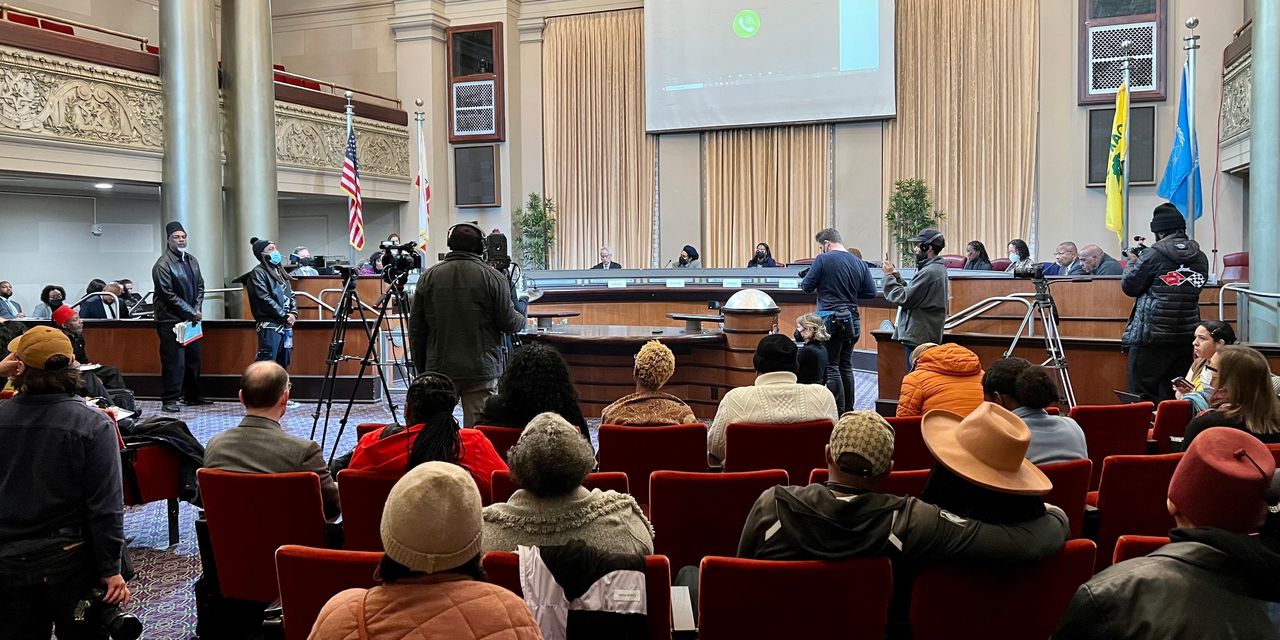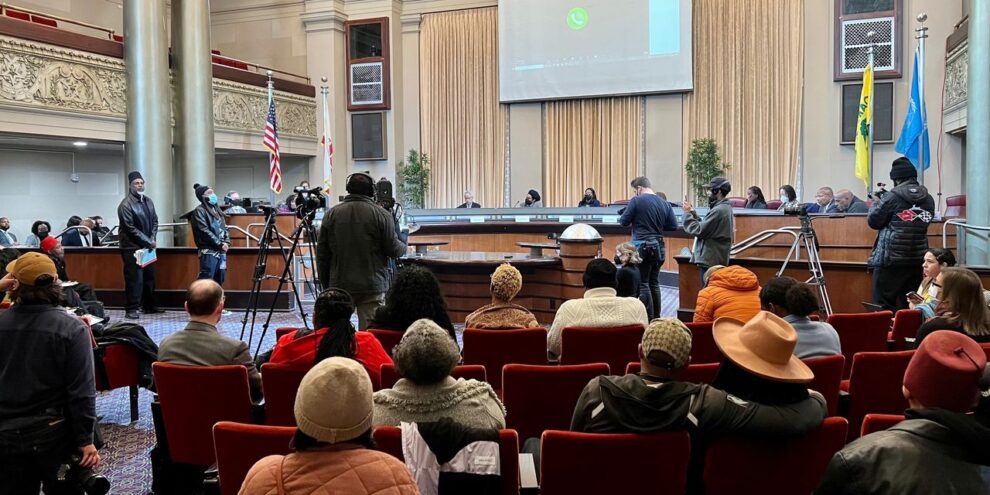
OAKLAND — The clock is ticking for the California Reparations Task Force, which has six months until it must submit its final, groundbreaking report to lawmakers and has already tallied a partial estimate of nearly half a million dollars that Black descendants of slaves could be owed.
The task force’s members grappled with big questions this week, such as how much possible monetary reparations should be and who exactly should receive them. And they are already thinking about the future of their work even though it is far from complete.
During two days of meeting at Oakland City Hall’s council chambers, the task force discussed time frames of main harms to Black Californians that the task force seeks to redress. It also introduced other ideas for non-monetary reparations, and how it can educate the public and continue making the case for why reparations are needed.
One of the biggest questions the body is facing is how much money would be paid out to descendants of enslaved persons, as the task force has already decided that any monetary reparations will be lineage-based. But the members must settle on hard numbers to include in its final report to the state legislature, which is due June 30, as well as suggest funding sources.
Professors acting as economic consultants for the body have calculated dollar amounts for three of the five main harms to Black people that the task force is zeroing in on: $223,239 for housing discrimination and redlining; $124,678 for mass incarceration; $127,226 per year of life expectancy for health harms, for a total of $475,123. The other two harms for which a calculation is not yet available are devaluation of Black businesses and unjust property taking. Also, a dollar figure for a California racial wealth gap could be coming, though the economic consultants and a task force member on Thursday discussed how that may be hard to come by.
“The wealth gap is the cumulative impact of racism over time,” said Jovan Scott Lewis, a UC Berkeley professor and a task force member. But the existing data on a racial wealth gap is national; Lewis and the expert economic consultants know of no wealth-gap data specific to California, though they said Thursday that they will try to figure it out.
The group will also decide what time frames to apply to the five main harms. Attorney Kamilah Moore, chair of the task force, on Wednesday suggested preliminary time frames based on research about related events in the state, such as redlining, the building of freeways that displaced Black residents and more:
- Unjust property takings: 1920 to present
- Devaluation of Black businesses: 1900 to present
- Housing discrimination and houselessness: 1937 to 1977
- Mass incarceration and overpolicing: 1970 to present
- Health harms: 1900 to present
At one point, some members expressed interest in keeping the task force intact past its scheduled disbanding next year to ensure its efforts aren’t “all for naught,” as State Sen. Steven Bradford, a member of the task force, said during Thursday’s meeting. Another member, lawyer Donald Tamaki, suggested ideas on extending the shelf life of the task force’s findings and reports, including by producing documentaries, podcasts and other content.
Also: Historic report lays out case to compensate descendants of slaves in California
The task force, established after a bill that became California law in 2020, is the first of its kind at the state level. It has nine members, who were appointed by the governor, the president of the state senate and the speaker of the state assembly. Under Assembly Bill 3121, the task force is responsible for studying and developing reparations proposals for African Americans.
Though California was not a slave state, its laws and policies “continue to disproportionately and negatively affect African Americans as a group and perpetuate the lingering material and psychosocial effects of slavery,” according to the bill.
Oakland residents and others from the Bay Area gave examples of some of those effects and the impact of racist policies during the public-comment periods that started each day of the two-day meeting.
One man said “I come from three generations of people who served this country” but that his family did not see the benefits of the GI Bill, which has been found to have mostly helped white World War II veterans.
A woman from Bayview-Hunters Point — a San Francisco neighborhood that has been predominantly Black since World War II, when the U.S. Navy lured Black people from the South to work on a local shipyard — spoke about the pain of generations of her family, too. The navy tested and buried radioactive material at Hunters Point, which is now a Superfund site, considered by the Environmental Protection Agency to be among the country’s most contaminated.
“My grandmother died from cancer,” she said. “My other grandmother died from cancer. My mother died from cancer.”
It is because of stories like these that besides monetary reparations, the task force also is recommending new and changed policies, such as allowing incarcerated persons to vote; repealing Proposition 209, which outlawed affirmative action in the state in the 1990s; ensuring Black studies are included in schools’ curriculum; and studying the impact of healthcare laws. It is also recommending the establishment of a California Freedmen’s Bureau to help the state’s Black residents, including with claims for possible reparations.
The body also heard from various people who are doing equity work around the Bay Area. Darlene Flynn, executive director of the Oakland Department of Race and Equity, talked about how white Americans have long benefited from government help — such as by receiving subsidized home loans that weren’t made available to Black people.
“What if we had an approach that provides subsidies like those that were provided to whites? All taxpayers paid for [those subsidies] at the time,” Flynn said, drawing applause from the people in the chambers. “That’s a case that must be made: This is fair. This is not a handout.”
Amos Brown, a pastor, civil-rights activist and member of the task force, alluded to backlash against the task force and its reparations work during the proceedings.
“We will not be deterred, even by negative voices,” he said Wednesday morning.
Once the task force submits its final report, it will be up to California lawmakers to write legislation to advance reparations. Brown told MarketWatch that whether such legislation could eventually become law may depend on those who have been speaking out against reparations.
Those include conservative groups who are claiming the task force’s proposals are “divisive” and an “overreach.”
Brown said he thinks the opposition is related to a “resurgence of right-wingers” in America today, which he compared with the rise of the Ku Klux Klan during Reconstruction. What happens with reparations depends on those who oppose it, he said: “The ball is in their court.”
The task force’s next two meetings will be Jan. 27 to 28 in San Diego and Feb. 27 to 28 in Sacramento, according to the state’s Department of Justice, which under AB 3121 is responsible for giving administrative, technical and legal help to the task force.
















Add Comment